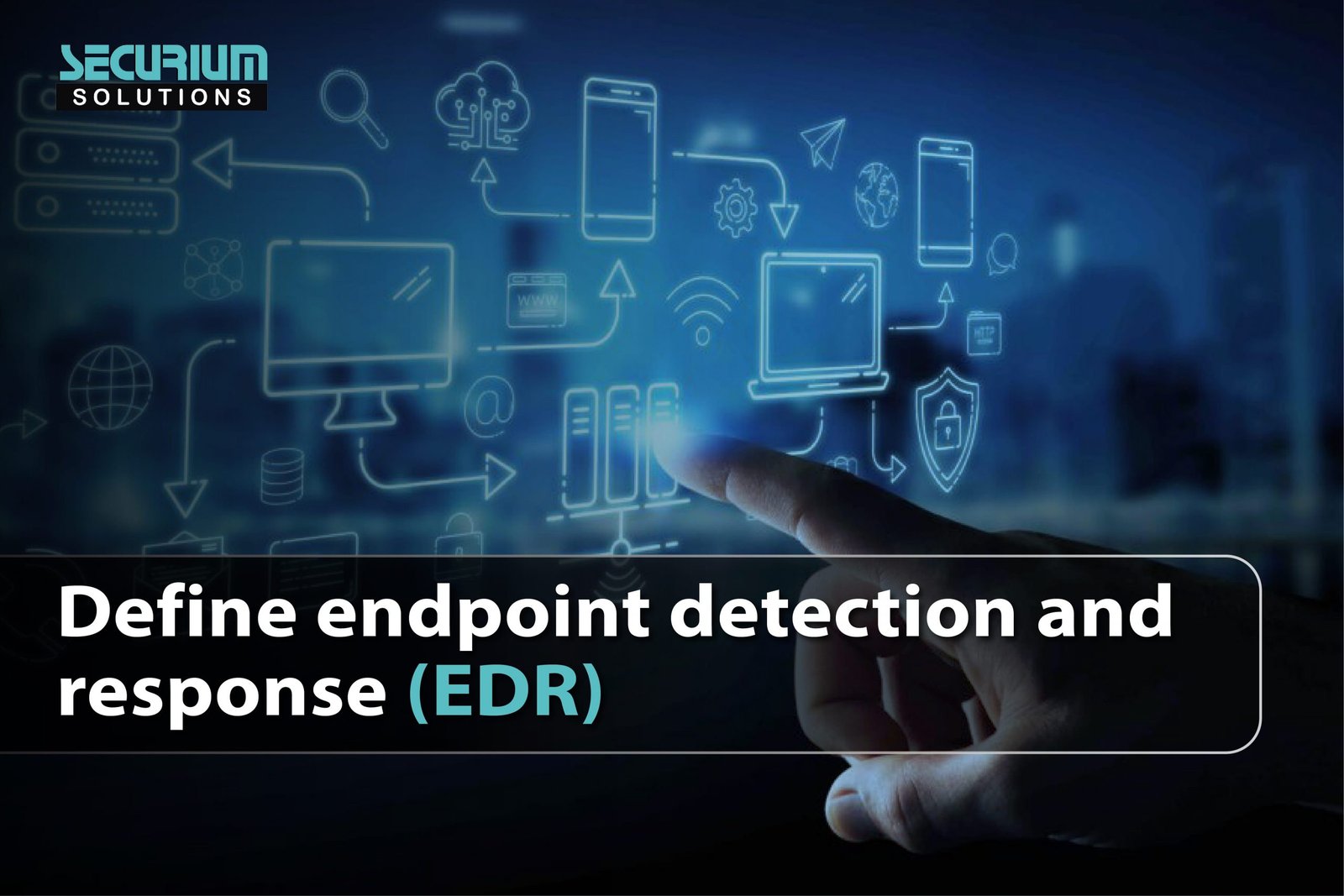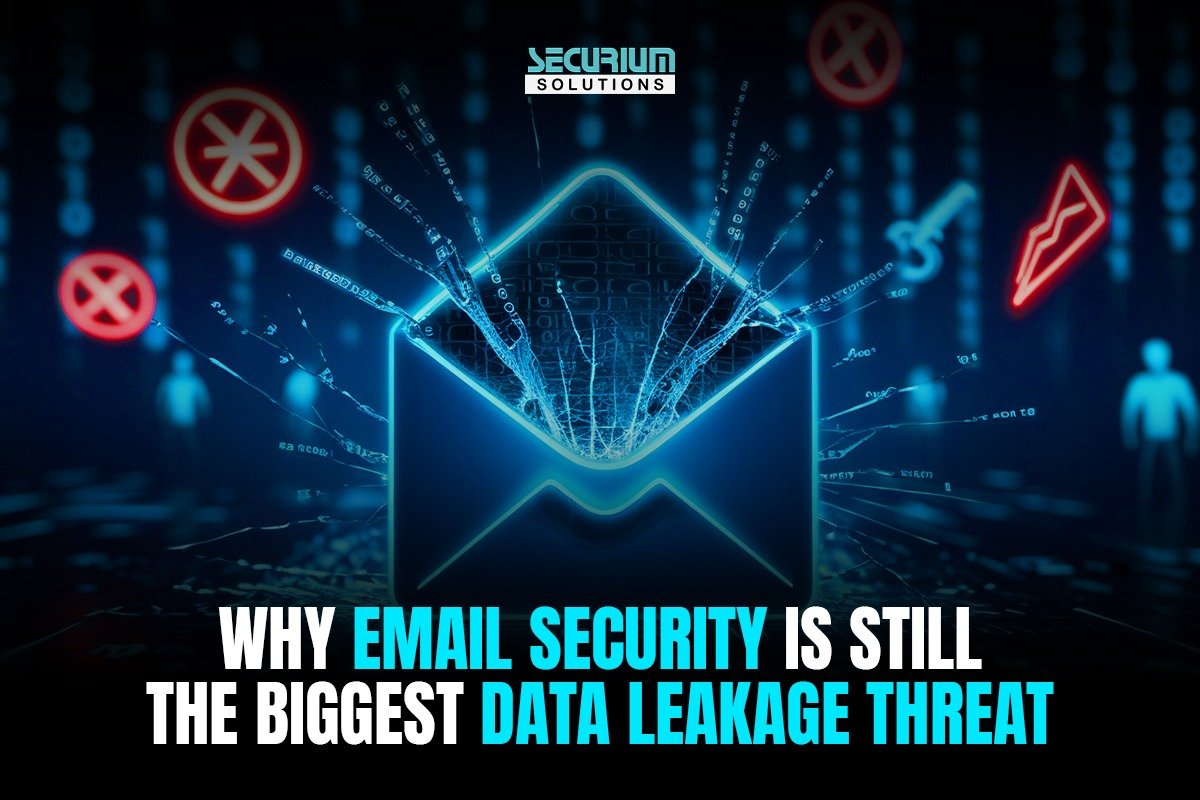Feb 06, 2023 / By Securium Solutions
Cyber threats are constantly evolving and becoming more sophisticated, making it increasingly challenging for businesses to keep their networks and systems secure. Endpoint Detection and Response (EDR) is a cybersecurity solution designed to protect against these threats by continuously monitoring the endpoint devices within an organization’s network for signs of malicious activity. In this blog, we will discuss what EDR is, its key features, and benefits, and why it is essential for businesses of all sizes.
What is Endpoint Detection and Response (EDR)?
Endpoint Detection and Response (EDR) is a type of security solution that provides real-time visibility and protection against cyber threats on endpoint devices. It continuously monitors endpoints for any suspicious activity, such as malware infections, unauthorized access, and data exfiltration, and can respond to these threats in real time. EDR solutions are typically cloud-based and are integrated with endpoint security software to provide comprehensive protection against cyber threats.
How do Endpoint Detection and Response Work?
Endpoint Detection and Response (EDR) works by continuously monitoring endpoint devices for any signs of malicious activity and responding to these threats in real time. The following is a high-level overview of the EDR process:
Data Collection: EDR solutions collect data from endpoint devices, such as logs, network traffic, and system activity, to create a baseline of normal activity.
Threat Detection: EDR solutions use various techniques, such as machine learning, behavioral analysis, and signature-based detection, to identify and detect cyber threats on endpoint devices.
Alert Generation: When a threat is detected, EDR solutions generate an alert, which is sent to the security team for further investigation.
Threat Response: The security team can respond to the threat by using the EDR solution to quarantine the infected device, block malicious activity, or report the incident.
Incident Management: EDR solutions provide an incident management system that allows security teams to track and manage threats and incidents, as well as conduct investigations and resolve incidents more effectively.
Reporting and Analytics: EDR solutions provide detailed reporting and analytics on the security of an organization’s network, allowing security teams to track the effectiveness of their security measures and make informed decisions on how to improve them.
Benefits of Endpoint Detection and Response (EDR)
Improved Threat Detection: EDR solutions use advanced techniques to identify and detect cyber threats, making it easier for security teams to detect and respond to threats in real time.
Real-Time Threat Response: EDR solutions allow organizations to respond to threats in real time, reducing the risk of data loss and minimizing the impact of a security breach.
Enhanced Visibility: EDR solutions provide real-time visibility into the security of an organization’s network, allowing security teams to identify and address potential security threats before they become major incidents.
Increased Efficiency: EDR solutions automate many of the manual processes associated with threat detection and response, increasing the efficiency of security teams and allowing them to focus on more critical tasks.
Improved Compliance: EDR solutions provide detailed reporting and analytics on the security of an organization’s network, helping organizations meet regulatory requirements and maintain compliance with industry standards.
Why Your Business Needs Endpoint Detection and Response (EDR)
Endpoint Detection and Response (EDR) is a critical component of an organization’s cybersecurity strategy due to the following reasons:
Detects and Responds to Threats in Real-Time: EDR solutions use advanced techniques to detect and respond to cyber threats in real time, reducing the risk of a security breach and minimizing the impact of a potential incident.
Provides In-Depth Visibility: EDR solutions provide in-depth visibility into the security of an organization’s network, allowing security teams to identify potential threats, respond to incidents, and maintain a secure environment.
Enhances Threat Hunting: EDR solutions provide security teams with the tools and data they need to conduct effective threat hunting and proactively search for signs of malicious activity.
Supports Remote Work: With the trend towards remote work, EDR solutions provide organizations with the ability to secure their remote workforce and ensure that their endpoint devices are protected even when outside of the traditional network.
Improves Incident Response: EDR solutions provide incident management capabilities, allowing security teams to respond to incidents quickly and effectively, reducing the risk of data loss and minimizing the impact of a security breach.
Streamlines Compliance: EDR solutions provide detailed reporting and analytics, allowing organizations to meet regulatory requirements and maintain compliance with industry standards.




